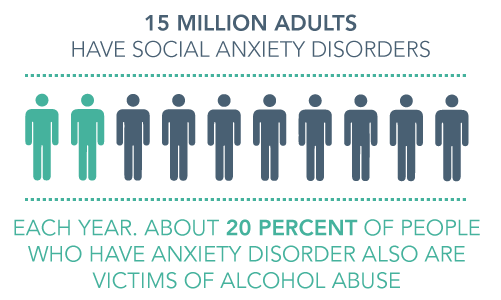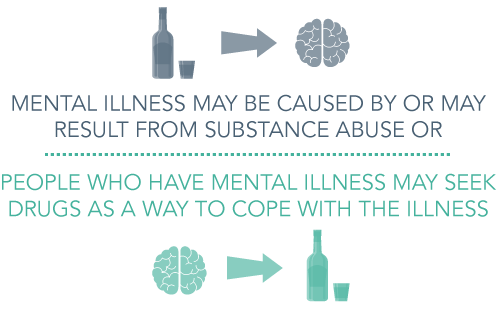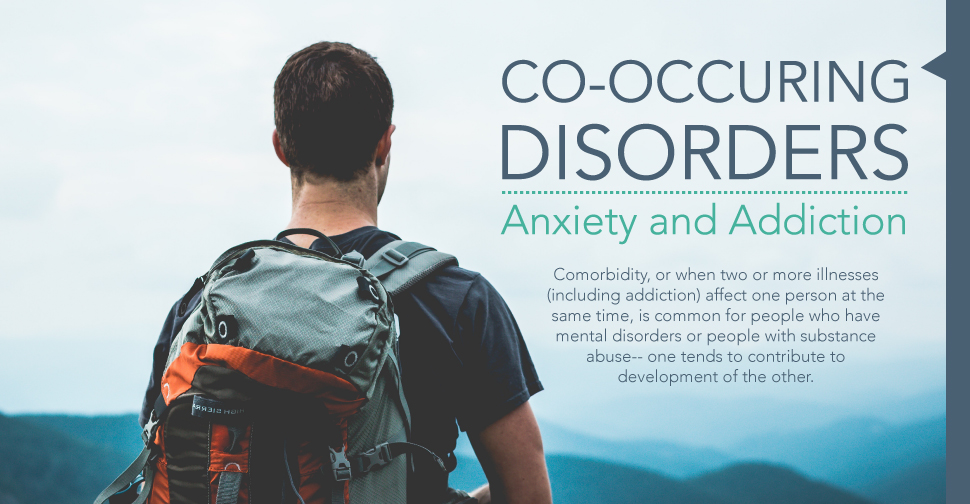Anxiety And Addiction: What You Need To Know
Though anxiety and addiction are not necessarily linked, having both can cause symptoms of each to worsen, according to the Anxiety and Depression Association of America. In particular, co-occurrence of substance abuse is common for those people affected by social anxiety. Mental illness may be caused by or may result from substance abuse, however, as new studies are finding. People who have mental illness may seek drugs as a way to cope with the illness, and conversely, people who are victims to substance abuse may develop mental illnesses. The following points highlight one of the most common dual diagnoses, social anxiety and alcohol abuse, how to diagnose these two disorders, and how to treat them.
Social Anxiety: A Catalyst For Alcohol Abuse
People with social anxiety tend to feel that the effects of alcohol help lessen their social anxiety. Unfortunately, in reality it tends to make their social anxiety worse, according to the Anxiety and Depression Association of America. In fact, alcohol abuse tends to follow the onset of social anxiety.

In America, approximately 15 million adults (accounting for 7 percent of the population) have social anxiety disorders each year. In trying to cope with this disorder and its symptoms, it is not unusual for people with this disorder to turn to alcohol; in numbers, about 20 percent of people who have anxiety disorder also are victims of alcohol abuse. Many seek alcohol because it provides temporary relief of social anxiety symptoms, but researchers have found alcohol tends to have the opposite effect, even if this effect takes place later. Some negative side effects which users with social anxiety may experience include:
- Anxiety
- Irritability
- Depression
Signs that someone may be abusing alcohol include the following, according to the Anxiety and Depression Association of America:
- Drinking alcoholic beverages four or more times per week
- Having five or more alcoholic drinks a day
- Not being able to stop drinking after starting
- Needing a drink to face the day
- Feeling guilty, or remorseful, after drinking
- Hearing someone close to you say he or she is concerned about you, or your drinking
Dual Diagnosis: Dealing With Two Disorders At Once
Comorbidity, or when two or more illnesses (including addiction) affect one person at the same time, is common for people who have mental disorders or people with substance abuse—one tends to contribute to development of the other. This is in part because drug addiction is a mental illness; addiction changes the way a person’s brain works, making it characteristic of many mental illnesses. In terms of numbers, in contrast to those who do not have a substance abuse disorder, people with addiction are twice as likely to also develop a mood or anxiety disorder. The first step in diagnosing is the careful identification of both addiction and anxiety disorders.

Seeking Treatment For Co-Occurring Disorders
Because there is such a high rate for co-occurring disorders, when treating two illnesses at once, it is imperative that treatment involves careful diagnosis and appropriate treatment for both disorders—not just one of them.

Although medications exist for treating single addictions to alcohol, opioids, and nicotine, no single drug has been developed specifically to treat addiction to two or more substances. However, there are some medications that may aid in the treatment of two disorders, such as bupropion, which can treat depression and nicotine addiction, and may also reduce cravings for methamphetamine, according to National Institute of Drug Abuse. Further research must be conducted in order to understand how medications can be used to treat people with comorbidities, but behavioral therapies are also available, and can be effective at treating people with comorbidities.
The Next Step: Finding Help For Co-Occurring Disorders
Co-occurring disorders can be disastrous when left untreated. In particular, having co-occurring disorders can mean that the victim never fully recovers from  either addiction. A person with social anxiety, in other words, may struggle with addiction his whole life. If you or someone you know is struggling with anxiety, and also battling addiction, (or even if they are battling a different set of comorbidities) do not ignore the signs. Contact us today at DrugRehab.org to help get the proper diagnosis and treatment, and to get your life back on track.
either addiction. A person with social anxiety, in other words, may struggle with addiction his whole life. If you or someone you know is struggling with anxiety, and also battling addiction, (or even if they are battling a different set of comorbidities) do not ignore the signs. Contact us today at DrugRehab.org to help get the proper diagnosis and treatment, and to get your life back on track.
Sources
Anxiety and Depression Association of America- Social Anxiety Disorder and Alcohol Abuse
Anxiety and Depression Association of America- Substance Use Disorders
Genetic Science Learning Center- Mental Illness: The Challenge of Dual Diagnosis
National Institute of Drug Abuse- Comorbidity: Addiction and Other Mental Disorders


